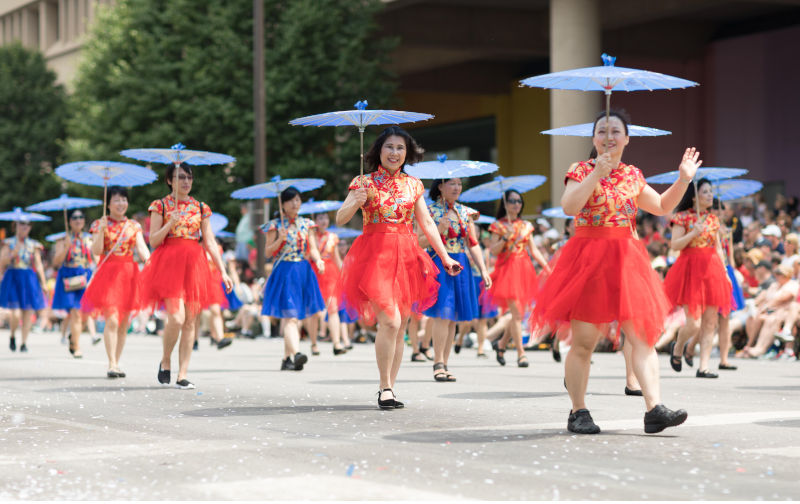Confucius Institute decline signals China’s soft power shift
September 17, 2025
While Chinese soft power is thriving in the so-called “Global South”, it is waning elsewhere.
This is illustrated by mapping the growth and decline of the Confucius Institutes – Beijing’s state-sponsored cultural and educational promotion programs.
The geographical divide is exacerbated by the increasingly confrontational US-China relationship. Beijing has recalibrated its soft power strategies in response to the new international security environment and these efforts have achieved greater success in BRICS and Global South countries than in Australia and other Western nations.
The language and culture programs delivered through the Confucius Institutes have not disappeared in the West – but their proliferation is no longer a key element of China’s soft power activities in those countries. Many iterations of the once-flourishing program have been closed or are dormant. In Beijing, the soft power work of the Ministry of Education is divided between their subordinate non-government organisation — the Chinese International Education Foundation — and the overseas China Cultural Centres of the Ministry of Culture and Tourism.
The shift follows significant leadership changes since the program was inaugurated in 2004 and the modification of national priorities under the 14th Five-Year Plan, which was adopted in 2021. The Ministry of Education adopted 10 “key tasks” under China’s Education Modernisation 2035 Plan. International education and the Confucius Institutes ranked second last in this plan’s prioritisation.
The Ministry of Culture and Tourism, formed from the 2018 merger of the Ministry of Culture and the National Tourism Administration, is committed to the Five-Year Plan’s exhortation to promote socialist culture, build a culturally strong nation, promote quality cultural tourism and leverage culture for national development. The Guangxi Tea Culture exhibition and performance in Sydney, Australia, in July 2025, demonstrate the Ministry’s linkage of culture and tourism by offering tour packages to tea plantations in ethnic minority areas of Guangxi Province.
Cultural promotion abroad through education, science, literature and the arts has long been a priority for China and Beijing has focused on increasing its cultural influence in those Western countries that influenced the development of its own modern culture as a matter of national pride.
The Confucius Institute and China Cultural Centre programs aim to uphold President Xi Jinping’s instruction to “tell China’s story well” – to present China and its culture positively in support of the government’s international objectives.
Each Confucius Institute is established by agreement and under the administration of individual universities in China and the host country. This arrangement was intended to provide scholastic credibility and integrity. But this has led some critics to suspect intentions to interfere with academic freedoms in Western countries and has been a root cause of the program’s decline.
The program also encourages foreign students to study in colleges and universities in China. This has limited appeal for Australian students. Though most universities have study-abroad programs, few have active exchange arrangements with universities in China. Chinese language study is generally declining in Australia – except for students from families with a Chinese-language background.
Chinese-study graduates often report a lack of interest in their language skills from prospective employers and difficulty finding jobs to apply their skills. Canberra encourages Asian language skills through the Department of Foreign Affairs and Trade’s New Colombo Plan – in which China is an eligible host location, but cautionary Smart Traveller advice can be a deterrent to applicants. The Foreign Influence Transparency Scheme Act 2018 has made university administrators hesitant to renew or develop ties with Chinese universities.
The Chinese government has noted the various disincentives for students considering Chinese studies and the surging currents of anti-China sentiment in some parts of the Western world. As such, Beijing has focused its efforts on Asian and African countries where public sentiment towards China is more positive.
International student numbers in China remain below the pre-COVID-19 pandemic peak, though they exceeded 200,000 in 2023. Many of these students were from the Global South, drawn by Chinese Government scholarships, relatively low fees and highly ranked universities.
Confucius Institute programs are linked with China’s influential and expanding Belt and Road Initiative. Education exchanges and the promotion of the Chinese language are cornerstones of the country’s international communications strategy and its attempts to expand its influence in host countries. The 44 Confucius Institutes in Latin America and 61 in Africa provide basic and advanced language training and offer scholarships for graduates planning to enrol in Chinese universities.
Program graduates also often look for employment with local Chinese companies or on aid projects. The soft power narrative of China as a rising power has been replaced by the promotion of the “community of shared destiny”. China’s revamped public narrative suggests that it wishes to be supportive of other countries’ development and will not dictate terms and conditions as the colonial powers once did.
This narrative has not found traction in Western countries. Whether tourism and cultural exchange will succeed in winning hearts and minds remains to be seen.
Republished from East Asia Forum, 13 September 2025
The views expressed in this article may or may not reflect those of Pearls and Irritations.


